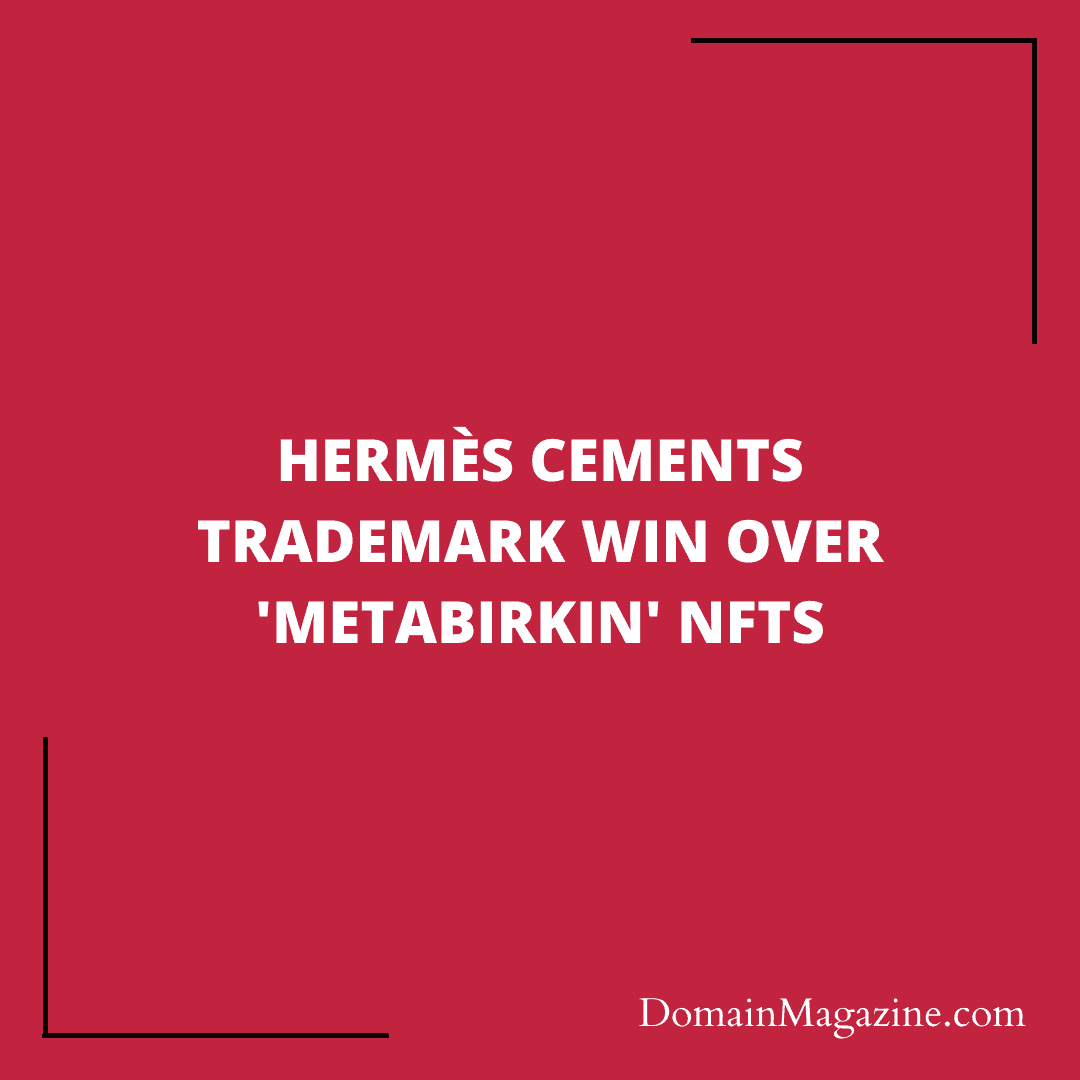In a significant development following Hermès‘ legal victory over Mason Rothschild, a federal judge in Manhattan has issued an order permanently banning Rothschild from selling his controversial MetaBirkins NFTs. This final request from Hermès solidifies the company’s win in the trademark dispute that unfolded earlier this year. The ruling, delivered by Judge Jed Rakoff, comes as a culmination of the case and reinforces Hermès’ claims against Rothschild.
The Jury’s Verdict: Rothschild as a Swindler

Back in February, a jury sided with Hermès, concluding that Rothschild had violated the company’s trademark for Birkin handbags with his collection of 100 “MetaBirkins” NFTs. These digital tokens were associated with images of fur-covered, patterned handbags. In the filing, Judge Rakoff highlights the jury’s determination that Rothschild was essentially a swindler, as Hermès successfully proved that he had intentionally misled consumers by creating the impression that Hermès was endorsing his products.
Damages Awarded and Permanent Injunction Imposed
As a result of the jury’s verdict, Hermès was awarded $133,000 in damages. This decision affirmed that Rothschild’s NFT collection does not fall under the umbrella of protected free speech. The recent order issued by Judge Rakoff permanently prohibits Rothschild from marketing, selling, and minting MetaBirkins NFTs, as well as making any statements that could associate MetaBirkins with Hermès in the future.
Restrictions and Airdrops
The injunction further restricts Rothschild from offering benefits to MetaBirkins holders that would incentivize their purchase, such as airdrops. However, he is required to airdrop the court order from Friday to current token holders. These measures reflect the court’s determination to curtail Rothschild’s activities related to MetaBirkins and prevent any future deceptive practices.
Protecting Intellectual Property in the NFT Realm

Hermès’ legal action against Rothschild sheds light on the challenges faced by brands when it comes to safeguarding their intellectual property in the context of NFTs. The emergence of NFTs as a popular form of digital collectibles has prompted big brands to explore opportunities in this space. However, they must navigate the complexities of a decentralized and permissionless culture.
Rothschild’s Liabilities and Misleading Consumers
The court’s ruling in February held Rothschild liable for trademark infringement, trademark dilution, and cybersquatting. Despite his defense of artistic expression, the jury found that Rothschild intentionally misled consumers regarding Hermès’ endorsement of the MetaBirkins project. Subsequently, in a March filing, Hermès accused Rothschild of continuing to promote the sale of MetaBirkins NFTs while seeking royalties from those sales.
Transfer of Ownership and Domain Name Relinquishment

Hermès requested that Rothschild be compelled to transfer the MetaBirkins NFTs he still owns to a wallet designated by the company. Additionally, Hermès sought control over the collection’s Ethereum smart contract. However, Judge Rakoff opted for a narrower injunction, acknowledging that MetaBirkins NFTs are, to some extent, works of art. While Rothschild can retain ownership of the NFTs, he must surrender any domain names associated with Hermès Birkins’ trademark, including metabirkins.com, by July 15. Hermès will subsequently archive the transferred domain name.
Implications for the NFT Landscape
The judgment in the Hermès vs. Rothschild case carries significant implications for the NFT landscape. It underscores the importance of protecting intellectual property and preventing deceptive practices within this emerging market. Brands must carefully consider their strategies when engaging with NFTs, balancing the opportunities for innovation with the need to safeguard their trademarks and brand integrity.
As the NFT space continues to evolve, legal battles and judgments like these will shape the way intellectual property is handled within this unique digital realm.
Related to this: NEW YORK COURT’S DECISION COULD PAVE WAY FOR FUTURE NFT REGULATIONS


Join the Discussion